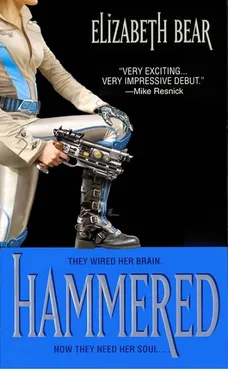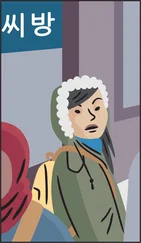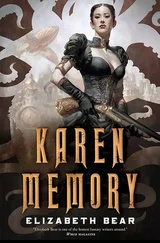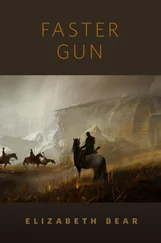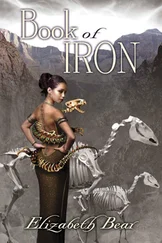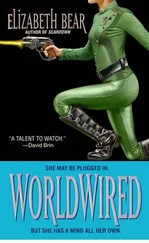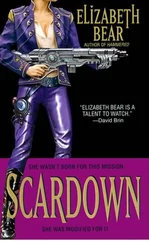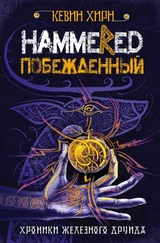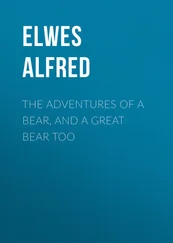She’s so very young, so very deadly. It breaks my heart. I want to tell her the truth: that you think you have it under control and then one day you wake up and discover that you hurt all the time and everybody you love is dead or won’t return your calls. You wake up one morning and discover you’ve become a brutal old woman, and pain makes you nasty company.
If you’re lucky enough to live that long.
A smaller population was a mixed blessing during the real bad years, a quarter century or so ago. Canada’s stayed a little more civilized than most of the world — in part by selling itself to the highest bidder — but it also means that my generation went almost entirely to the military, and our historic freedoms went out the window with the Military Powers Act of 2035, following our little altercation with China over PanMalaysian trade when the beanstalk went in.
I got into some real trouble regarding that act when I was young and foolish. I’m still not exactly what you would call proud of what I did then, but I’m alive to talk about it. And Gabe Castaign is alive and out of jail as well.
Somebody else isn’t. But that’s a story for another day.
I signed up at sixteen, two years before they could have drafted me. They were kind enough to keep me out of front-line combat for those two years. That was when I learned to be a grease monkey. Once the economic and then the religious troubles in the U.S. closed what was once the longest unguarded border in the world, Canada retreated into something like an armed camp, as aware as the United States used to be of just how desperate our neighbors to the south might be.
The summers got hot and the winters got cold. The U.S. was awfully hungry for a while, too — especially when the Gulf Stream quit from Antarctic meltwater and the climate shift gave them searing droughts in the summer and winters like cold hell on earth. I didn’t even like to think about Britain and Ireland.
The population is still dropping, but the food riots and the Christian Fascist regime are largely a thing of the past. My U.N. unit was at Buffalo before we shipped to South Africa — we made it as far south as Hartford, and it was bad here, but after that I was on a plane to Cape Town and missed out on the peacekeeping action in New York City. Merci à Dieu.
So, why did I retire to the United States, I hear a low voice asking? Well, that relates back to what I said earlier, about Canada selling things. There’s a multinational — an interplanetary, they like to call themselves, since they sponsor Canada’s extraterrestrial bases — called Unitek. That company has been a real high bidder for a while now.
I was one of the things that got sold.
I want to tell Bobbi all of this. Half of it, the part about how the world works, she knows better than I do. The other half wouldn’t mean anything to her. Yet.
“So what are you doing here?” I gesture around the Federal.
She shrugs. “I have family back home. If I save enough, I can get them over the border into Russia or the Ukraine. Things are better there. No crop failures yet.” And the government is less interested in starving the population to feed its off-planet projects, she doesn’t say.
I nod. The historically cold countries are still better off; although the winters are worse, a hotter growing season hasn’t hurt them any, and they can use the water they get. “Me, I’m just more comfortable in a war zone. Did your would-be customer happen to leave a name or contact codes?”
“No name,” she says, reaching down to unclip her HCD. She lays the green plastic oblong, half the size of her palm, on the bar and holds her hand out for mine. “I’ll transfer the data.”
I reach into the pocket of my jeans and pull out my own hip. I usually carry mine turned off, which explains why Bobbi had to leave a message for me at home, cautioning me to meet her in person. I blink twice to activate the data stream in my prosthetic eye. Glancing at Bobbi, I spot the almost microscopic blue readouts crawling across her contact as I give her authorization. She transfers the codes.
“Thanks,” I say when she has finished.
“Don’t mention it, Maker. Or should I call you — what was it? Genevieve?”
“Just don’t call me late for dinner,” I answer, and get the hell out of that bar.
Something is making me want to go look at Nell’s package, hidden away in the bottom of my trunk. As if to reassure myself that she was real, that my childhood really happened. I don’t know. I haven’t looked at the things she gave me since I put them away, a quarter century gone by.
Maybe I’ll even manage to open it this time. If I can convince myself I’m not dishonoring the damn thing by touching it. There are rules about that sort of thing.
National Defence Medical Center
Toronto, Ontario
Morning, Thursday 7 September, 2062
Elspeth sipped her tea before setting it on the counter in the cafeteria, next to the coffeepot. She sighed and closed her eyes, early morning tiredness dragging on her limbs. Her brain felt clogged; she had slept terribly, in a plastic chair. I should just save Valens the cost of the hotel room, she thought. It’s not like I’m spending nights there. And then: Oh, what the heck. Unitek can afford it.
She rubbed her temples with her forefingers, hoping the headache riding her like a crown of thorns would subside, and mused on the irony of her pacifist father in a military hospital — that used to be Toronto General. Friday. If only I didn’t have to go to the lab today.
She picked up the paper cup of tea with her left hand, shielding the palm with a paper napkin, went through the line for the cashier, and found the elevator back up to Acute Care. She nodded to a nurse, two residents, and the unit secretary, all bleary-eyed at the end of the graveyard shift, and returned to her father’s room.
A private room. Valens was as good as his word there, too.
Albert Dunsany was sleeping when she came in and set her tea on the yellow swiveling tray beside the bed. Wires and tubes sagged indiscreetly from beneath the white chenille cover, and Elspeth turned so that she could see only her father’s face, sunken-cheeked and nearly as pale as the pillowcase. Funny how I look so much like Mom and nothing like him, she thought. I’ve got his eyes, though. Hazel.
She turned the plastic chair and sat back down beside the bed, very gently taking his nearer hand. His skin felt waxen and cool. Elspeth thought for a moment that if she squeezed, it would crumple in her grip like paper. Slowly, his eyes opened, and he turned his gaze on her from under half-raised lids. Pale eyes that used to sparkle with mirth still brightened when they focused on her face. “Ellie.”
“Dad.” She took a breath. “I have to go home and shower so I can go to work. I’ll be back to see you tonight, all right?”
It seemed to take him a moment to process the information, but at last he nodded slightly, mindful of the tube running under his nose. “Be careful out there.” He fought to give her an exhausted smile, and she blinked hard.
“I will.” She inclined her head, more to hide her eyes from him than out of agreement.
A sound that might have been a cough or a small, pained laugh escaped him. “I’m… proud isn’t the right word. But I’m glad they pardoned you. I never doubted. I want you to know. I knew you were innocent.”
Elspeth leaned closer, half-standing, and kissed him on the forehead, interrupting whatever he might have said next. “You always believed in me. Have I ever told you how lucky I feel about that?”
Читать дальше
